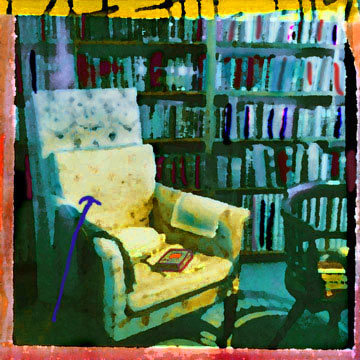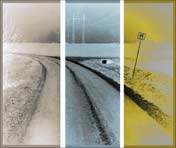DIAGNOSIS PROGNOSIS RESOLUTION
There are many parallels between medicine and health on the one hand and peace research and peace-making on the other.Health is not just the absence of illness. Peace is not just the absence of violence. Both have a positive value and both must be defined as a resourceful, convivial states - on the plus side of a continuum.
A healthy body is not constantly dependent on medication, pills or injections. It has a considerable innate potential for resisting bacteria, viruses and other challenges.
Likewise, a peaceful society is not constantly dependent on weapons and violent methods to solve its problems. It has a natural capacity for dealing with its conflicts through methods such as mediation, consultation, negotiation, cultural rituals and judicial processes.

The science of medicine deals both with cure and prevention. So does the science of peace.
The doctor and the peace-maker alike would argue that the earlier a problem is diagnosed, the better the chance of healing and resolution. They would agree that prevention is more efficient and pleasant than cure.
In principle, they would both argue, also, that beyond a certain amount the intake of stimulants will be self-defeating, one way or the other, for the human as well as the social body. So, there is the addiction to drugs and, say, alcohol; and there is the addiction to weapons, the adrenalin of war-fighting, even killing - and the profits to be earned by selling weapons.
Over time, there will be a sensed need for more and more of the drug to feel good - and for the society to feel secure. Sooner rather than later, the body, as well as the society, loses control and dignity.
Two types of social structures constantly push the misuse: there is the Medical-Industrial Complex (MIC) with its marketing campaigns for more, not less, medicine coupled with promises of the pain-free life.
And there is the parallel MIC, the Military-Industrial Complex or, broader, the Military-Industrial-Media-Academic Complex (MIMAC). Both build their power over individuals and society through the use of fear - fear of falling ill and dying prematurely and fear of being invaded, bombed, occupied, etc.
Peace researchers and peace-makers have looked to the science of medicine and health for inspiration ever since the first academic units were established; so, for instance, TFF Associate Johan Galtung in his book simply called Peace Research from 1967.
Following the analogy here, peace researchers and peace-makers should carry out Diagnosis, Prognosis and Therapy/Treatment in a professional manner (D-P-T) in order to succeed in helping bring about peace.
It goes without saying that a peace-maker will also be committed to the doctor's ethical code number one: Don't cause more blood-spilling or pain than what is absolutely justifiable during the process of conflict-resolution. And don't snatch the conflict from those who have it but instead co-operate with them - like a doctor must naturally co-operate with the patient and cannot threaten or force him or her into accepting a certain medicine or surgery.
Having said this, there are differences too.
Perhaps the most important is that medicine as a science has been around for a much longer time (and has much more funding at its disposal); peace research has not yet developed anything near a comparable body of comprehensive knowledge about violence and peace.
Interestingly, the sciences of medicine and health have managed to win the game over superstition, exorcism and quackery. In contrast, peace research and true peace-making still have to fight an uphill battle with similar phenomena in its field, such as militarism and war propaganda, racism, demonization, stereotyping, projections of one's own evil sides on the other, cultural and other ignorance - all funded by multi-billion dollar budgets.
There is only one conclusion to draw from this state of affairs: We must continue to do better and better peace D-P-T in the future! It's an essential element of a civilizational process to learn to cherish our conflicts and clash in intelligent ways, i.e. with as little violence as possible.
The UN Charter states it in simple and clear words: peace shall be established by peaceful means. It's as Gandhian as it can be: "the means are goals-in-the-making".
And when we know these ways, wars, nuclear weapons and all the rest will be looked upon by future generations as we look today upon cannibalism and slavery.
Although very small, all-volunteer and operating on a shoe-string budget, TFF with its diverse, multi-cultural expertise will continue to do its bit.


 Get Free Email Updates
Get Free Email Updates Support this site
Support this site Feedback
Feedback About this website
About this website